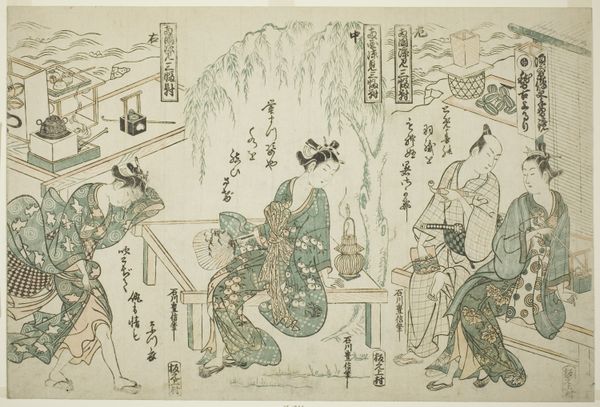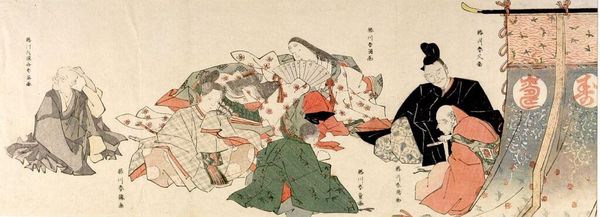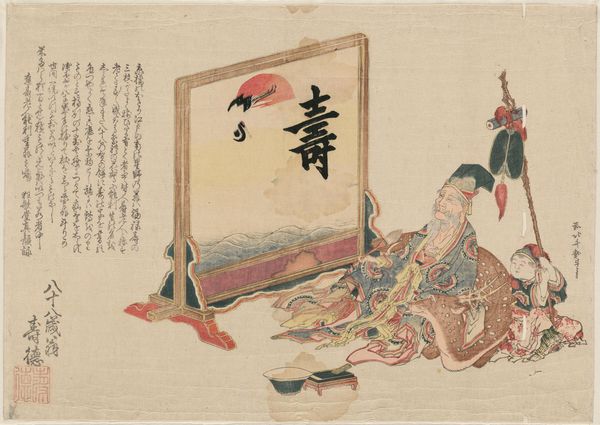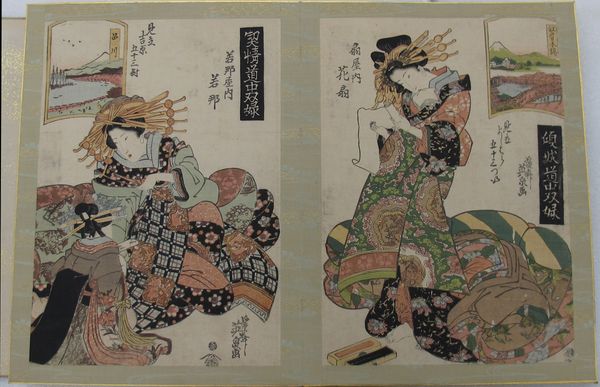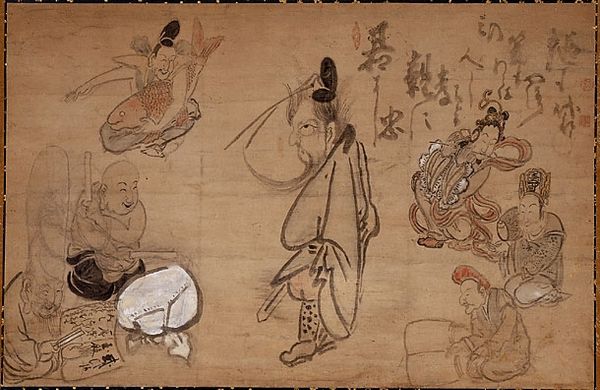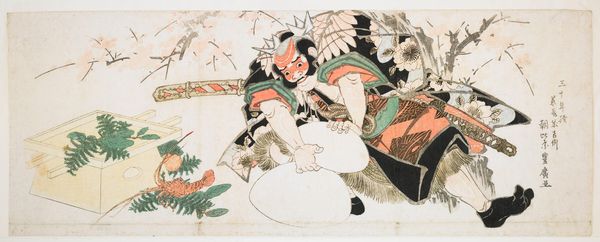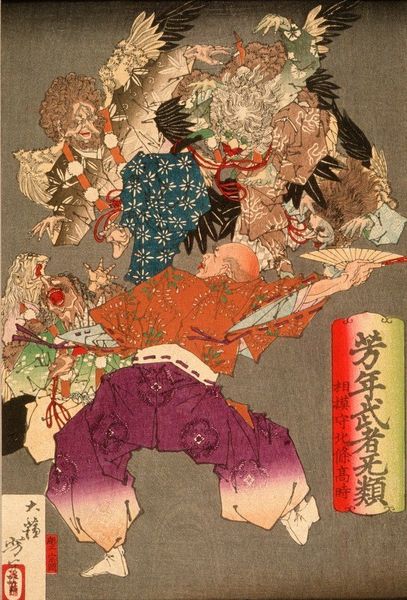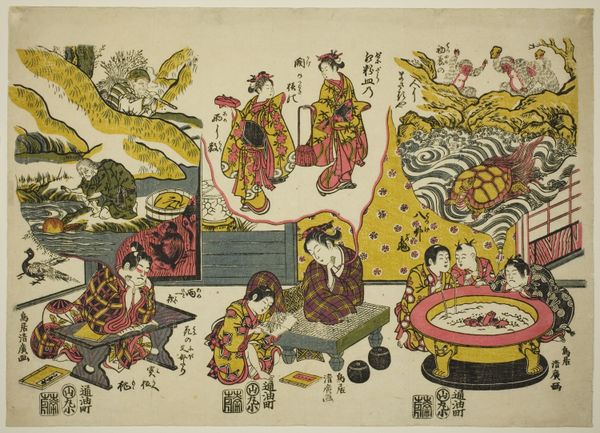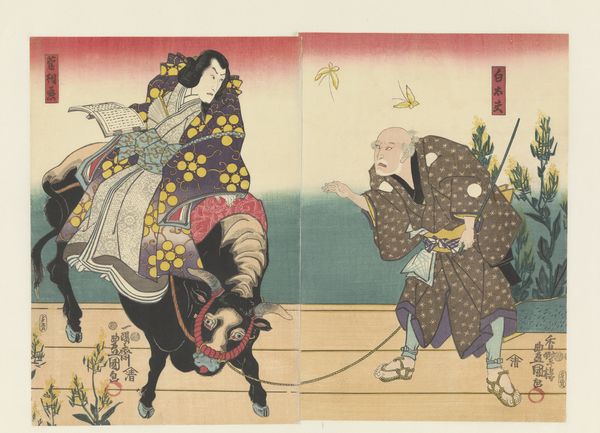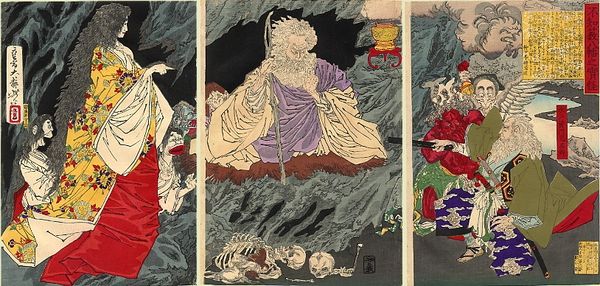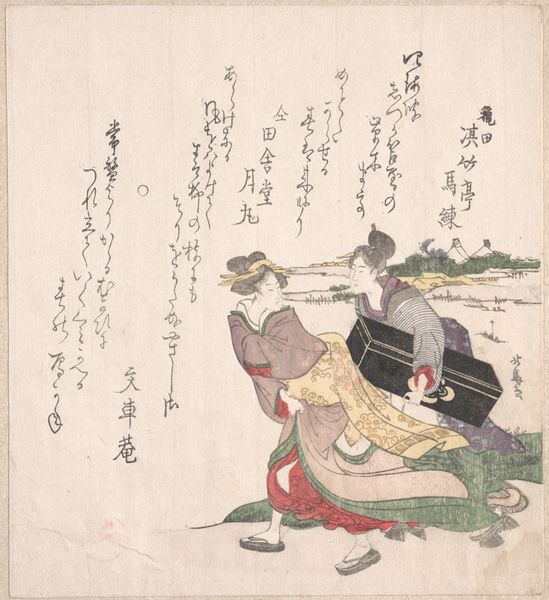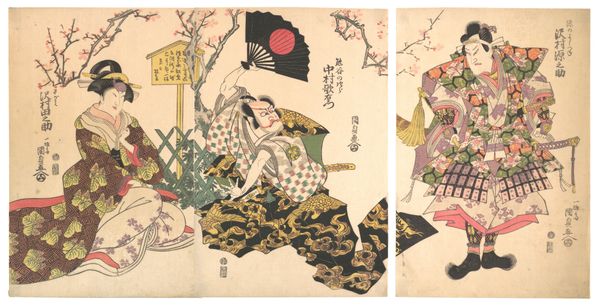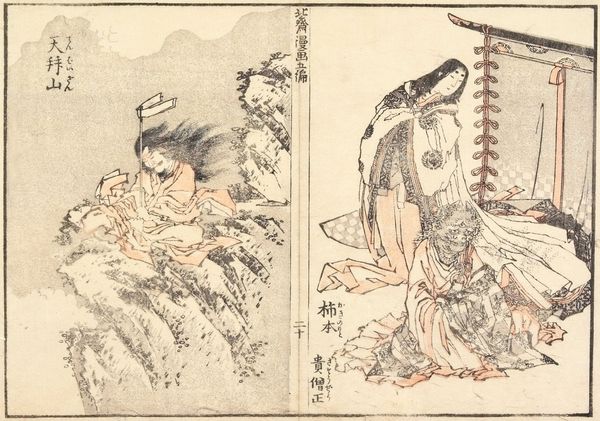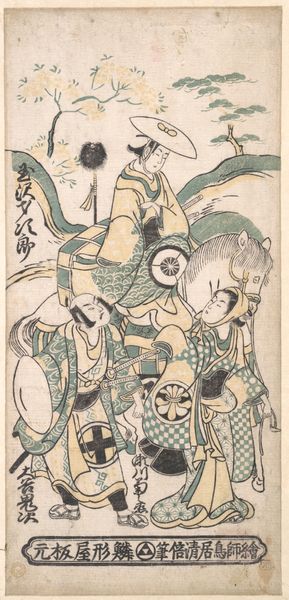
print, woodblock-print
#
narrative-art
# print
#
asian-art
#
ukiyo-e
#
figuration
#
woodblock-print
Copyright: Public domain
Curator: Here we have an intriguing woodblock print entitled "The Seven Lucky Gods" by Tsukioka Yoshitoshi. What catches your eye first about this piece? Editor: There’s such dynamism! It feels… frenetic. The gods are intertwined, tumbling almost, which clashes delightfully with the typical serene portrayal of deities. It disrupts expectations in an interesting way. Curator: Absolutely! This depiction cleverly departs from tradition. Yoshitoshi draws on the well-established imagery of these gods, figures representing prosperity, longevity, and happiness that are deeply embedded in Japanese folklore. Their placement and depiction within ukiyo-e, art for the common people, indicates a cultural memory readily accessible to audiences of the time. Editor: It also raises questions of who exactly is “lucky,” and what luck even means in this context. The chaotic scene evokes a feeling that their divine power isn’t being utilized in the service of ordinary people; the figures instead feel divorced from their duties and… well, human. Their luck appears exclusively beneficial to themselves. Curator: That tension between the divine and the mundane is central to Yoshitoshi's practice. He frequently disrupted norms and explored different modes of representing his figures in the print medium. Editor: Right! The symbolism gets more intriguing when contextualizing ukiyo-e's role. Were these prints simply aesthetically pleasing, or were they subtly pushing back against the status quo? Maybe critiquing the roles of traditional authorities even then. It urges viewers to ponder the social responsibilities linked to privilege and fortune. Curator: Indeed. Visual imagery is, in this instance, doing so much more than we initially expect; as an extended allegory it questions deeply embedded beliefs about fate and power. Editor: So, "The Seven Lucky Gods" then functions not merely as representation but intervention, inviting us to reconsider long-held perspectives about fortune, duty, and communal responsibility? Curator: Precisely. Editor: Looking closer has undoubtedly altered my initial impression. Curator: And given me much to consider about symbolism that moves beyond representation to embody broader critique.
Comments
No comments
Be the first to comment and join the conversation on the ultimate creative platform.
